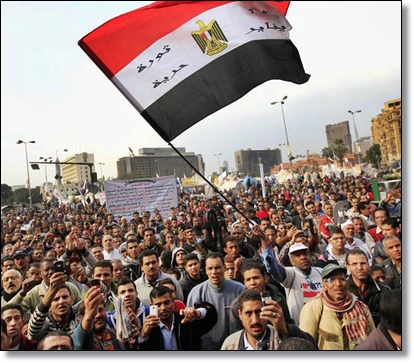Egypt Military Coup: An Affront to Democracy

 |
| Anti -Morsi crusaders P.Courtesy |
It was also Egypt under Nasser along with Ethiopia under Haile Selassie, which inspired other African countries to intensify their struggles for independence. The African Union is an immortal monument to the contribution, which Nasser’s Egypt made to the continent’s political and social development.
Tragically, last week, Egypt took a quantum leap into a possible civil war. The army chief Abdul Fattah al-Sisi ordered the democratically elected president Morsi to step down. He arrested the president, a civilian, and detained him at a military barrack without charge or access to lawyers. He closed down the opposition press including a TV station and arrested hundreds of opposition leaders and supporters.
He persuaded the defeated political leaders and religious groups to lend dignity to his coup by reading pre-pared military statements before the world press. He appointed as proxies the constitutional court judge Adly Mahmud Mansour who became interim president, Mr Hazem el-Beblawi, the former finance minister as new minister and former UN diplomat Mohamed ElBaradei as deputy president. They will implement military decrees written by General al-Sisi.
And then he ordered troops to shoot at peaceful demonstrators, killing 51 people including women and children, calling them terrorists! Finally, he organised a press conference and sent a senior army officer, Ahamed Latif, to defend the indefensible massacres, claiming that the army had acted in self-defence.
According to the Egyptian army and their new friends in the opposition who lost the 2012 presidential elections, president Morsi had to be removed because he had failed to tackle the vicious cycle of institutional corruption, rampant unemployment and economic mess in the country.
Wait a minute! How was president Morsi expected to undo in one year, what the Egyptian army had created and perpetuated over a period of thirty years when they ruled the country?
The self-serving intervention by the Egyptian army and their civilian allies is a classic example, which justifies the claim by some people in the west, that it is not racism, but evidence, which leads them to argue that Africans cannot govern themselves. To underline the point, the army has unilaterally produced a road-map to democracy, which includes amending the old constitution and organising elections within twelve months! What will stop them from also toppling whoever is elected president if they do not like his face or policies? But that is a question for another day.
Meanwhile, with 51 of their supporters shot dead in cold blood, it is not surprising that the Muslim Brotherhood, the most organised political and social group in Egypt, has rejected the road-map as a fraud. Nor will they drop their demand for Mohamed Morsi to be released and reinstated as president. For their part, the Egyptian army is unlikely to release its grip on power, thanks to $1.3 billion, which they receive from the US every year.
This is very bad news not only the ordinary Egyptians, who are craving for political stability and pace in order to concentrate on tacking the dehumanising poverty, which blight their lives. It also sets a dangerous precedent for the army elsewhere in Africa to topple a democratically elected government if they do not like the president.
Most worryingly, the Egyptian military government by proxy is likely to take a more aggressive and uncompromising stance against Ethiopia’s grand hydro electric power project, bringing the two African countries closer to war than ever before. This will reinforce the view in some quarters in the west that Africa is a continent that prefers to spend billions of dollars on war machinery while millions of children die of malnutrition and related diseases.
The African Union is right to expel Egypt from the organisation. The International Criminal Court (ICC) should now live up to its reputation for tackling impunity and commence urgent investigations against Egyptian coup leaders and their collaborators for the massacres of 51 demonstrators, which amount to crimes against humanity.
By Sam Akaki
The author Sam.akaki@hotmail.com is a Ugandan-born former independent parliamentary candidate in the UK general elections, May 2010. He is also the founder executive director of Democratic Institutions for Poverty Reduction in Africa (DIPRA).
